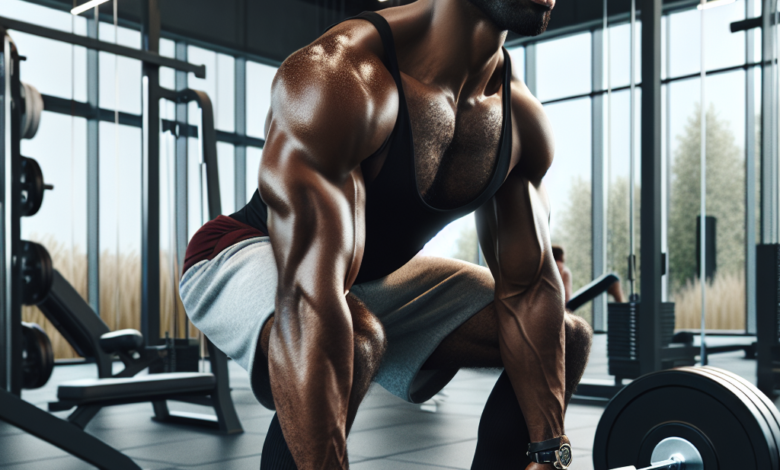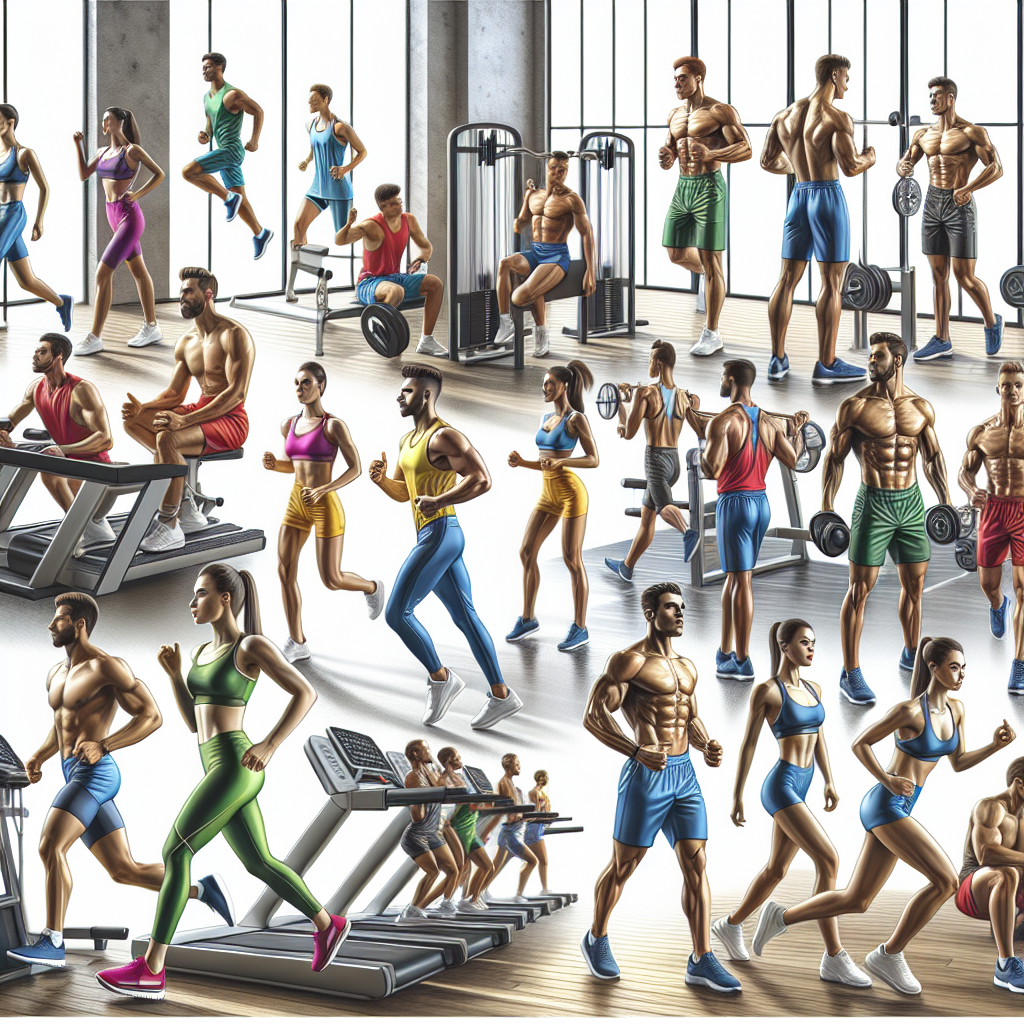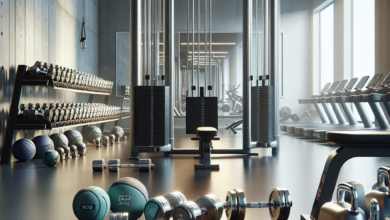
Training like an elite athlete is more than just pushing your physical limits; it’s about adopting a holistic approach that encompasses specialized workouts, nutrition, recovery, and mental focus. These athletes are at the pinnacle of their respective sports, not just because of their natural talent, but due to their unwavering commitment to a comprehensive training regime.
At the core of elite athlete training is the *dedication* to optimizing every facet of one’s fitness journey. From incorporating advanced strength and conditioning programs to following meticulously planned nutritional guidelines, elite athletes leave no stone unturned. This approach not only enhances their physical capabilities but also improves their mental resilience, enabling them to perform at their best under pressure.
Understanding the principles behind elite athlete training can offer valuable insights for anyone looking to elevate their fitness game. Whether you’re a seasoned athlete or a fitness enthusiast, integrating these top tips into your routine can help you achieve significant improvements in performance.
Explore More at Muscle Theory to discover advanced strategies and routines tailored to your fitness goals.
Specialized Workout Routines

When it comes to training like an elite athlete, specialized workout routines are crucial. These routines are meticulously designed to target specific muscle groups, improve functional strength, and enhance overall athletic performance. Unlike generic workout plans, specialized routines are tailored to meet the unique demands of different sports and activities.
One of the key components of specialized workouts is periodization. This involves systematically varying the training intensity and volume over different phases to prevent plateaus and optimize performance. For example, a runner might focus on building aerobic endurance during the off-season, while shifting to high-intensity interval training (HIIT) closer to competition.
Another essential aspect is sport-specific training. This means incorporating exercises that mimic the movements and demands of the athlete’s particular sport. For instance, a basketball player might include plyometric drills to improve explosive power, while a swimmer might focus on resistance training to enhance stroke efficiency.
In addition to sport-specific exercises, elite athletes also benefit from cross-training. Engaging in different types of physical activities can help improve overall fitness, reduce the risk of injury, and prevent burnout. For example, a cyclist might incorporate yoga for flexibility and core strength, or a football player might use swimming for cardiovascular conditioning.
By integrating these specialized workout routines into your training plan, you can target specific areas for improvement and maximize your athletic potential. Whether you’re preparing for a competition or simply aiming to elevate your fitness level, these tailored routines can provide the structure and variety needed to achieve your goals.
Optimized Nutrition for Athletes
To train like an elite athlete, it’s essential to fuel your body with optimized nutrition. Proper nutrition not only enhances performance but also aids in faster recovery, reduces the risk of injury, and supports overall health. The foundation of an athlete’s diet should be a balance of macronutrients: carbohydrates, proteins, and fats.
Carbohydrates are the primary energy source for high-intensity training and endurance activities. Athletes should focus on complex carbs like whole grains, fruits, and vegetables to ensure sustained energy levels. Timing is crucial; consuming carbs before and after workouts can help maintain glycogen stores and promote recovery.
Proteins are vital for muscle repair and growth. Lean meats, fish, eggs, dairy products, and plant-based proteins like beans and lentils should be included in an athlete’s diet. Aiming for around 1.2 to 2.0 grams of protein per kilogram of body weight can support muscle maintenance and development, especially after intense training sessions.
Healthy fats are also necessary for optimal performance. Sources like avocados, nuts, seeds, and olive oil provide essential fatty acids that support brain function, reduce inflammation, and supply long-lasting energy. Incorporating these fats into meals can help maintain energy balance and satiety.
In addition to macronutrients, micronutrients play a vital role. Vitamins and minerals like iron, calcium, vitamin D, and antioxidants are essential for energy production, bone health, and immune function. Including a variety of colorful fruits and vegetables in your diet can help meet these nutritional needs.
Hydration is another crucial aspect. Dehydration can significantly impair performance, so athletes should aim to stay well-hydrated before, during, and after training. Water is typically sufficient, but for prolonged or high-intensity activities, electrolyte-replenishing drinks might be beneficial.
By focusing on these elements of optimized nutrition, athletes can enhance their training effectiveness and overall health. Implementing a well-rounded diet that meets both macro and micronutrient needs is key to reaching peak performance and sustaining long-term athletic success.
Importance of Proper Recovery

The importance of proper recovery cannot be overstated when it comes to training like elite athletes. Recovery is the period during which your body repairs and strengthens itself after workouts. It plays a crucial role in preventing injuries, improving performance, and maintaining a high level of fitness over time.
Rest is the cornerstone of recovery. Without adequate rest, the body cannot repair muscle tissues that are broken down during intense exercise. This can lead to overtraining syndrome, characterized by decreased performance, fatigue, and increased risk of injuries. Therefore, incorporating rest days into your training schedule is essential.
Another key component is sleep. Quality sleep allows for the release of growth hormones, which are vital for muscle repair and growth. Aim for 7-9 hours of sleep per night to ensure your body has ample time to recover.
Active recovery is also beneficial. Light activities like walking, swimming, or yoga can help increase blood flow to muscles, reducing soreness and accelerating the recovery process. These activities should be low intensity to avoid further strain on the muscles.
In addition to rest and sleep, nutrition plays a pivotal role in recovery. Consuming a balanced meal rich in proteins and carbohydrates after workouts can help replenish glycogen stores and repair muscle tissues. Hydration is equally important; water helps transport nutrients to cells and remove waste products from the body.
Stretching and foam rolling are effective techniques to enhance recovery. Stretching improves flexibility and reduces muscle stiffness, while foam rolling helps release muscle tightness and improve circulation.
Recovery tools like compression garments and massage guns can also be valuable. Compression garments help reduce muscle swelling and fatigue, while massage guns can target specific muscle groups to relieve tension and promote blood flow.
By prioritizing proper recovery, athletes can minimize the risk of injuries, enhance their performance, and ensure long-term success in their fitness journey. Remember, the time spent outside the gym is just as important as the time spent training.
Mental Focus and Discipline

When it comes to training like elite athletes, mental focus and discipline are just as crucial as physical prowess. Achieving peak performance demands unwavering commitment and a strong mindset, which can often be the differentiating factor between success and failure.
Mental focus involves the ability to concentrate on the task at hand, blocking out distractions and maintaining a high level of intensity throughout a workout. Techniques such as visualization, where you imagine yourself successfully completing a workout or achieving a goal, can significantly enhance focus. This mental rehearsal prepares your mind and body for the challenges ahead, making the actual execution smoother and more effective.
Goal setting is another powerful tool to boost mental focus. By setting clear, achievable goals, you create a roadmap to success. These goals should be specific, measurable, attainable, relevant, and time-bound (SMART). Breaking down larger goals into smaller milestones can also provide a sense of accomplishment and keep motivation levels high.
Discipline is the backbone of any successful training regimen. It means sticking to your workout schedule, adhering to your nutrition plan, and resisting the temptation to skip workouts or indulge in unhealthy foods. Discipline is forged through consistency and routine, which can help turn healthy habits into a lifestyle.
Practicing mindfulness and meditation can also improve mental focus and discipline. These practices help reduce stress, enhance concentration, and promote a sense of calm and clarity. Even a few minutes of daily meditation can make a significant difference in your mental resilience.
Positive self-talk is another technique that elite athletes use to maintain mental focus and discipline. By replacing negative thoughts with positive affirmations, you can boost your confidence and keep a positive outlook, even during challenging workouts.
Lastly, surrounding yourself with a supportive community, whether it’s a coach, training partners, or a fitness group, can provide the encouragement and accountability needed to stay disciplined. Their support can help you push through tough times and celebrate your achievements.
Incorporating these mental strategies into your training can elevate your performance, helping you train like the elite athletes you aspire to emulate. Remember, the mind is a powerful tool in achieving your fitness goals.
Tracking Progress and Performance

One of the critical aspects of training like elite athletes is tracking your progress and performance. Without measurable data, it can be challenging to determine whether your current routine is effective or needs adjustments.
Regular assessments allow you to monitor your improvement over time. This can include tracking metrics such as weight lifted, running times, body measurements, and even energy levels. Keeping a detailed workout log, whether in a journal or a digital app, ensures you have a comprehensive record of your fitness journey. By analyzing this data, you can identify trends, plateaus, and areas needing improvement.
Setting benchmarks is another valuable tool. Establishing baseline measurements at the start of a new training program provides a reference point for future assessments. From here, you can set specific, achievable goals and use your benchmarks to celebrate progress and adjust your training plans as needed.
Utilizing technology and wearables can further enhance your ability to track progress. Devices like fitness trackers, smartwatches, and heart rate monitors provide real-time feedback on various performance metrics, from steps taken and calories burned to sleep quality and recovery rates. These tools give you instant insights into your daily habits and overall fitness levels.
Additionally, employing performance tests at regular intervals can provide an objective measure of your athletic capabilities. These tests can range from VO2 max assessments for endurance athletes to one-rep max tests for strength trainers. The results offer concrete evidence of improvement and can guide your training adjustments.
Another essential aspect is seeking feedback from coaches, trainers, or even training partners. An external perspective can highlight areas you might overlook and offer strategies for further improvement. Constructive feedback can be invaluable in refining your techniques and maximizing your training efficiency.
Ultimately, tracking progress and performance is about staying informed and making data-driven decisions to enhance your training. By regularly evaluating your progress, you can ensure that you are on the right path to achieving your fitness goals.
Ready to elevate your training game? Explore More at Muscle Theory for additional tips and resources to help you train like an elite athlete.



